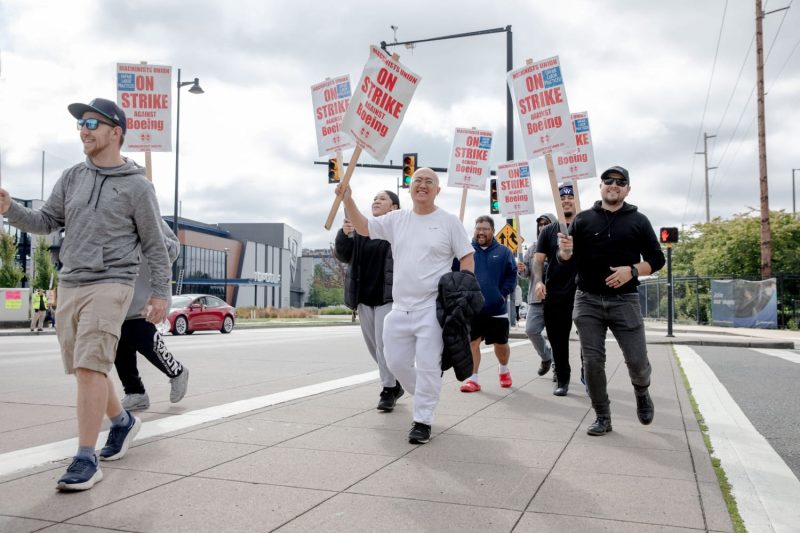Boeing, one of the most prominent names in aviation history, has recently begun furloughing tens of thousands of their employees. This comes as a direct response to the ongoing machinist strike which has significantly hampered the company’s operational abilities. The implications of this move by Boeing are significant and far-reaching, affecting not only the company and its employees, but potentially impacting the overall aviation industry as well.
The machinist strike, which is the prime trigger behind this decision, has been a significant impediment to Boeing’s routine manufacturing and operations. The crux of the issue lies in the demands of the machinists for better wage packages, health benefits, and job security. The attempt to reconcile the demands of the machinists with the realities of economic pressure has thus far failed, leading to the strike. This strike, which has been ongoing, has severely affected Boeing’s manufacturing pipeline, causing significant delays and a consequent drop in productivity and profitability.
Reacting to the increasing pressure and the unmitigated loss, Boeing decided to instigate a wave of considerable layoffs, furloughing a vast swath of its working force. This drastic move, while seemingly a solution to immediate economic concerns, has raised a multitude of concerns and questions from both internal and external sources.
The furloughed employees, for start, bear the brunt of the decision. With no immediate resolution in sight, thousands of employees face an uncertain future. The impact extends beyond just the direct Boeing employees, reaching to the subcontractors, suppliers, and indirectly associated businesses and vendors who rely on regular Boeing operations for their livelihood.
Furthermore, Boeing’s decision to furlough employees during the machinist strike puts the company on a challenging path, creating a dynamic that could potentially result in an internal discord between the company management and the unionized machinists. This discord could potentially create an environment of mistrust and frustration, which might undermine employee morale and lead to lowered productivity and efficiency in the longer run.
Boeing’s furloughing decision also has more extensive implications on the wider aviation industry. As one of the leading manufacturers of the industry, any disruption to Boeing’s operations can have a ripple effect on the global supply chain, directly affecting airlines and other companies dependent on Boeing for their fleets. In the longer run, this could potentially result in increased costs and delivery delays of aircraft, thus impacting the overall profitability of the aviation industry.
While the furloughing of employees might be seen as a defensive move on Boeing’s part in response to the ongoing machinist strike, its implications are vast and far-reaching. Complicating the company’s internal dynamics, impacting the besieged employees, and disrupting the broader aviation industry, the move underscores how industrial disputes can have profound consequences. This developing situation brings to attention the need for better conflict management strategies and improved labor relations in major corporations like Boeing.




